Accessories ــــ ⏱ 3 min read
Hydraulic systems consist of various components used to transmit power and motion through pressurized fluid (usually oil). Hydraulic accessories play a vital role in the proper functioning of these systems. Below are some of the most important hydraulic accessories and their descriptions:
Hydraulic Pump
- Function: Converts mechanical energy into hydraulic energy by creating a flow of pressurized fluid.
- Types:
- Gear Pump
- Piston Pump
- Vane Pump
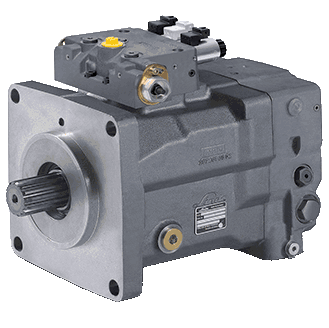
Hydraulic Motor
- Function: Converts hydraulic energy into rotational motion.
- Types: Gear motor, piston motor, vane motor.
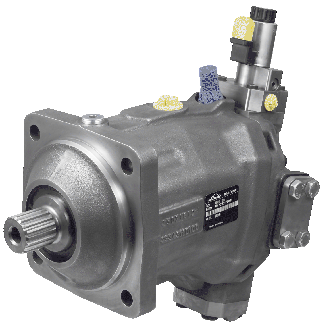
Control Valves
- Function: Controls the direction, pressure, and flow rate of the fluid.
- Main Types:
- Directional Control Valve: Determines the flow path.
- Pressure Relief Valve: Limits system pressure.
- Flow Control Valve: Regulates the speed of cylinders or motors.
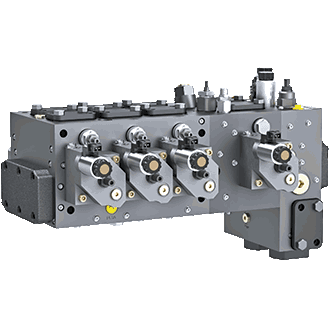
Hydraulic Cylinder
- Function: Converts hydraulic energy into linear motion (push or pull).
- Applications: Cranes, excavators, industrial presses.
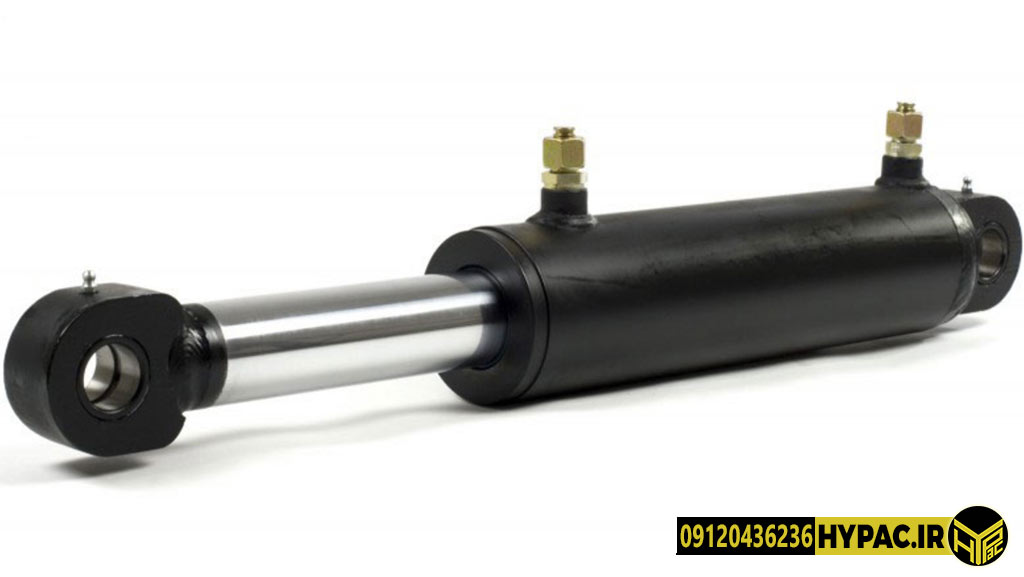
Hydraulic Reservoir
- Function: Stores hydraulic fluid, cools the oil, and separates air and contaminants.
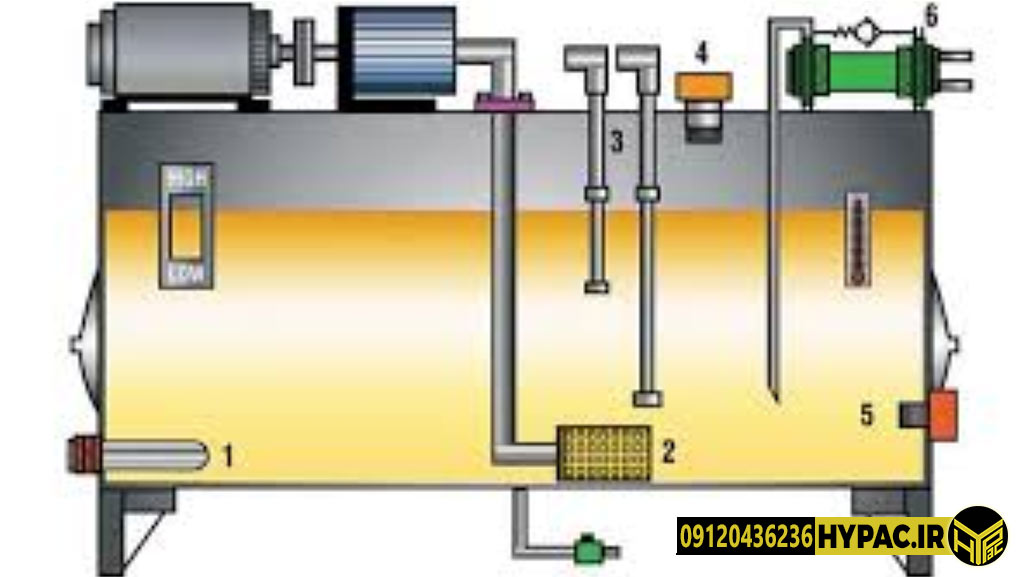
Filters
- Function: Removes contaminants from the oil to prevent damage to components.
- Installation: On the pump inlet or return line.
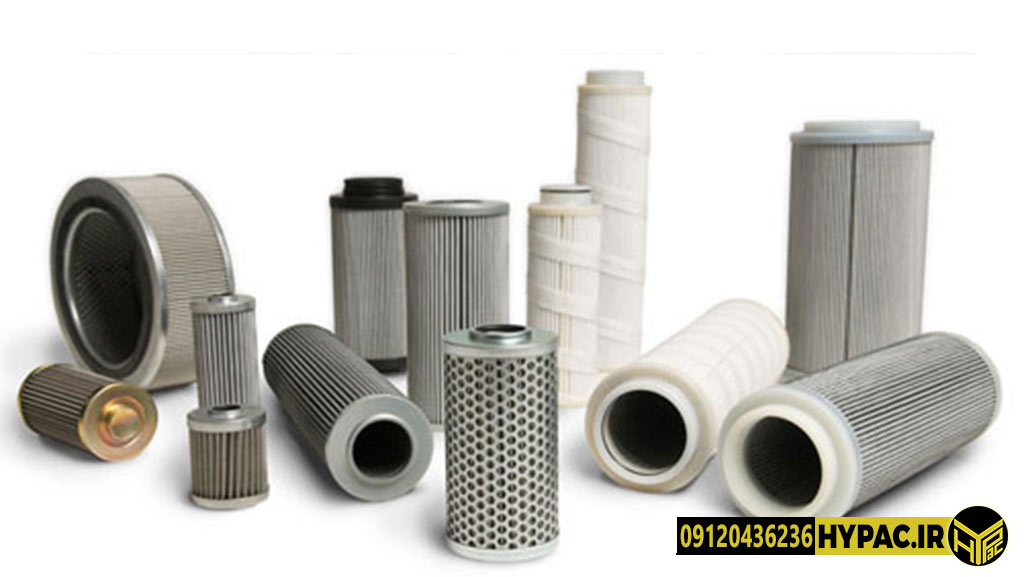
Pipes and Hoses
- Function: Transfers fluid between components.
- Material: Stainless steel, high-pressure plastic, or reinforced rubber.
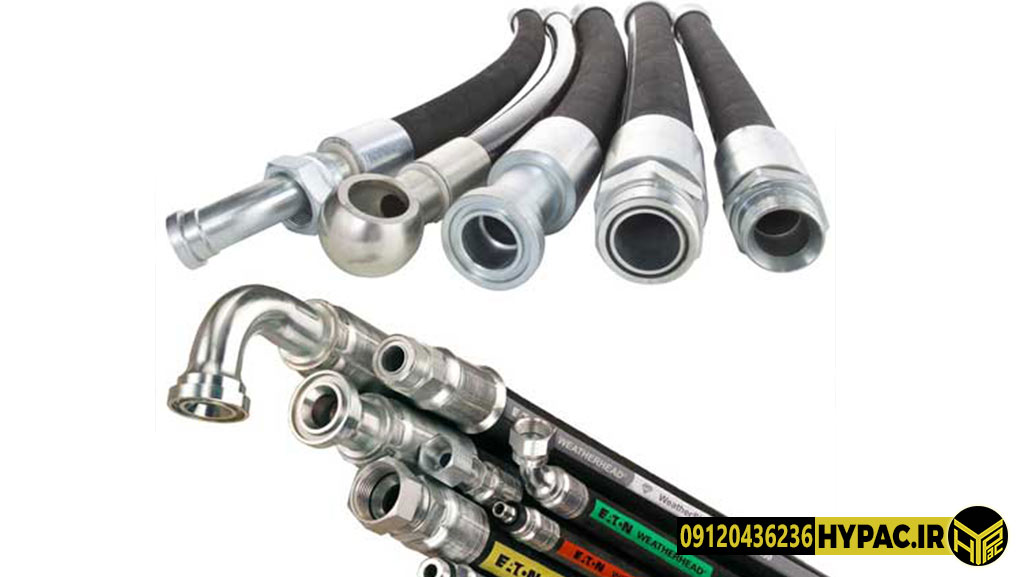
Fittings
- Function: Provides secure connections for pipes, hoses, and other components.
- Types: Quick couplings, threaded fittings, flanges.
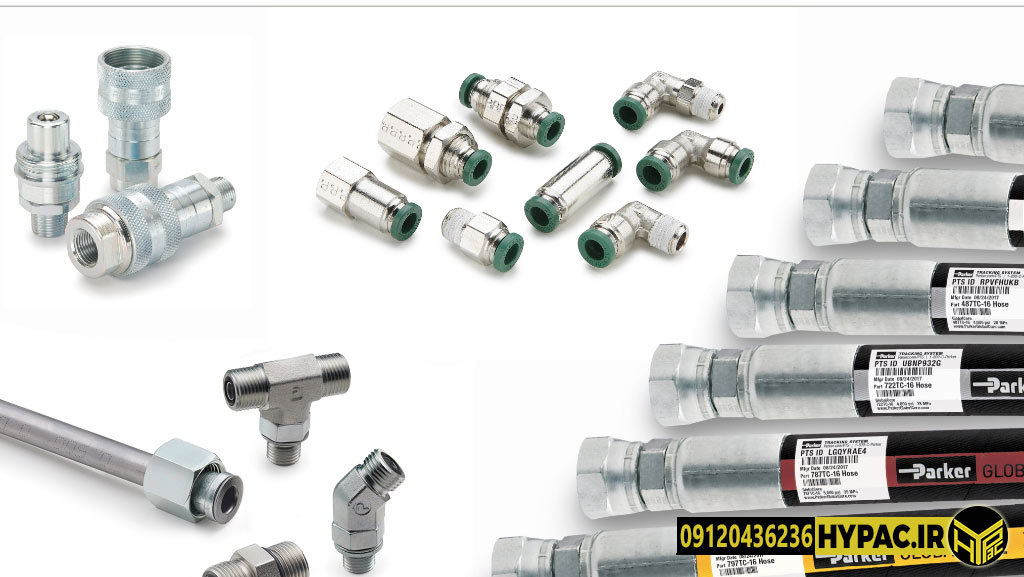
Seals
- Function: Prevents oil leakage and maintains system pressure.
- Types: O-ring, gasket, wiper seal.
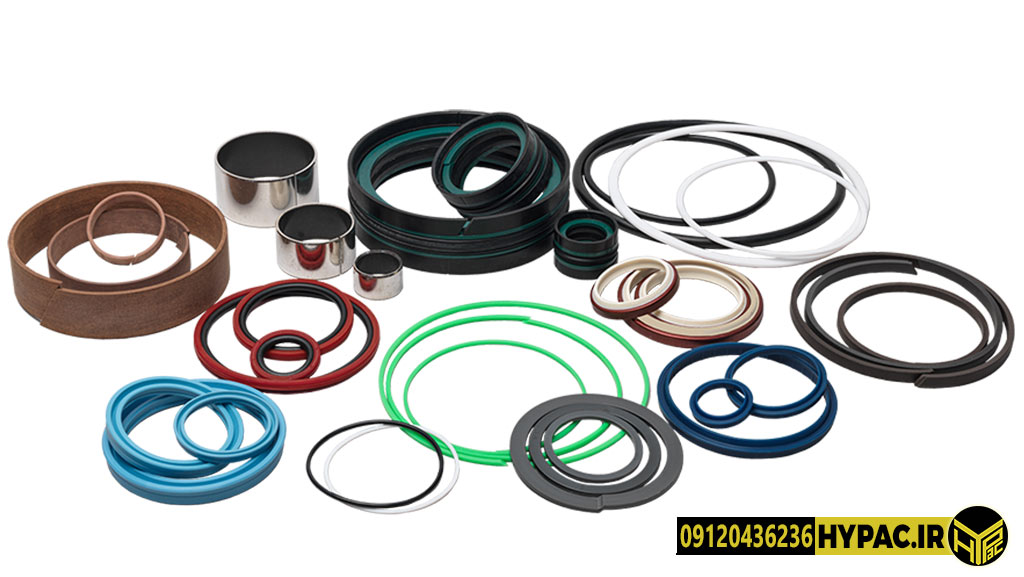
Accumulator
- Function: Stores hydraulic energy and reduces pressure fluctuations.
- Applications: Shock absorption, emergency pressure supply.
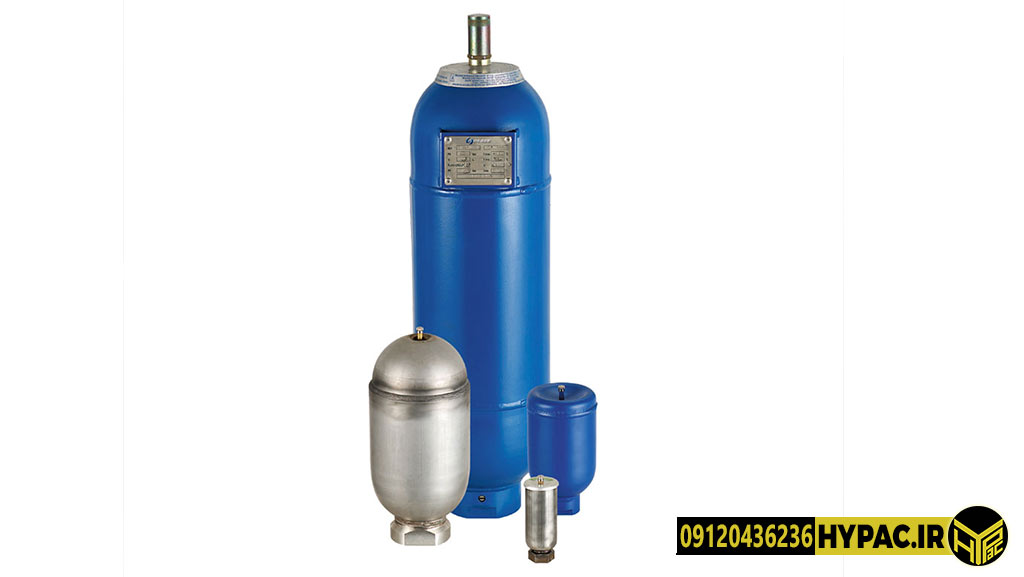
Pressure Gauges and Sensors
- Function: Displays pressure, temperature, and other system parameters.
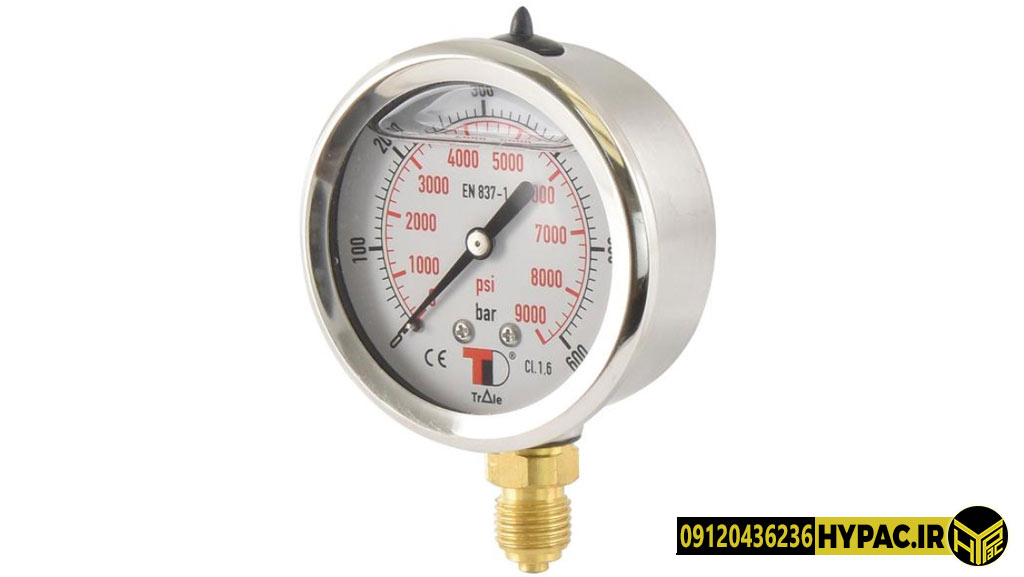
Coolers and Heaters
- Function: Regulates fluid temperature to prevent overheating or freezing.
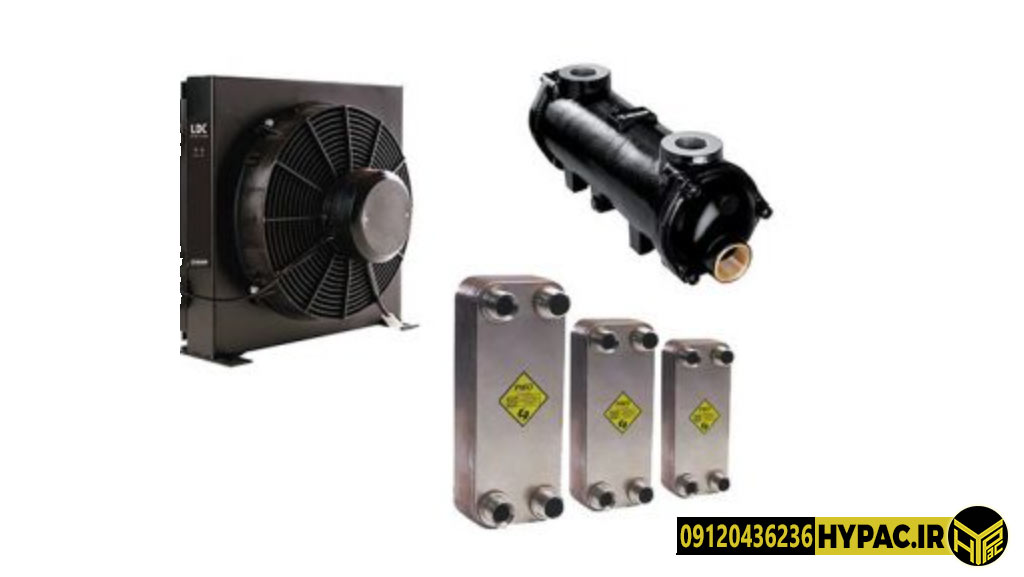
Key Maintenance Tips
- Use hydraulic oil with the appropriate grade.
- Replace filters and seals on time.
- Regularly inspect hoses and fittings to prevent leaks.
- Prevent fluid contamination (Contamination Control).
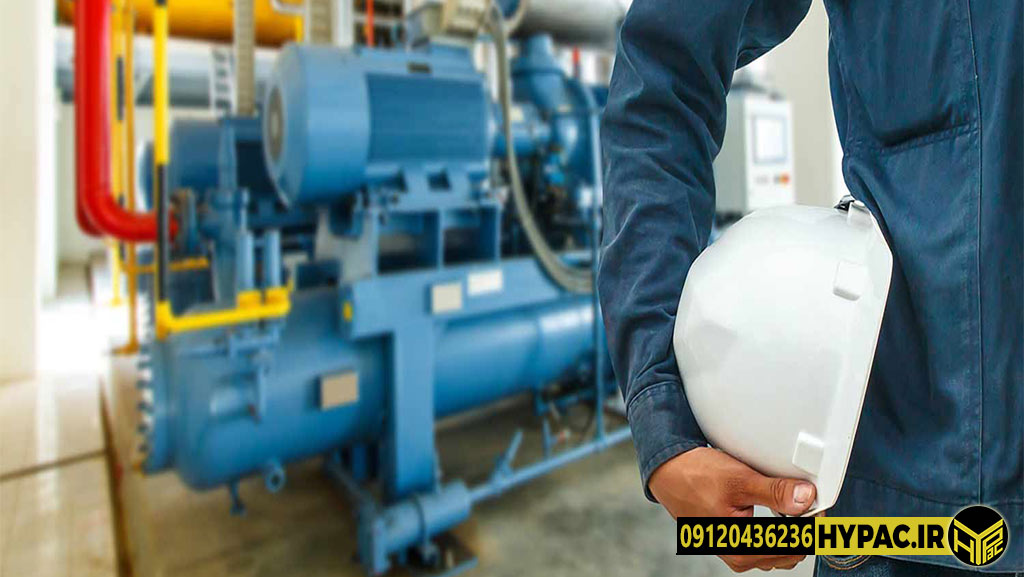
Common Applications of Hydraulic Systems
- Industrial machinery (presses, plastic injection machines).
- Construction equipment (excavators, loaders).
- Aircraft and hydraulic steering systems.
By selecting high-quality components and performing regular maintenance, the lifespan of hydraulic systems can be significantly extended.
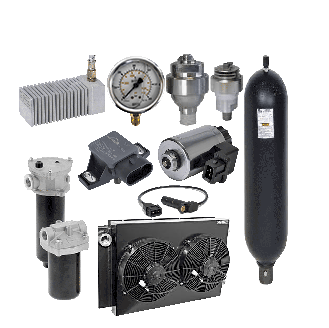
افزودن دیدگاه